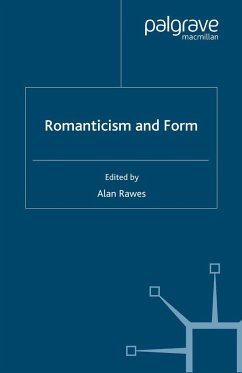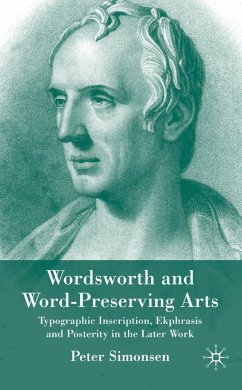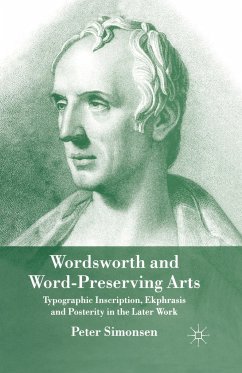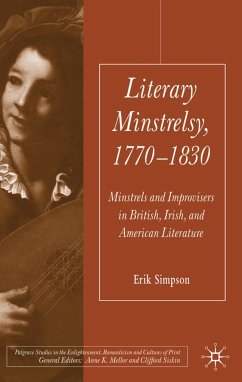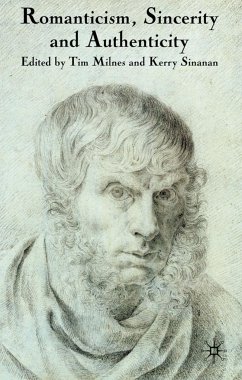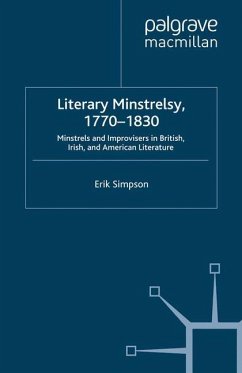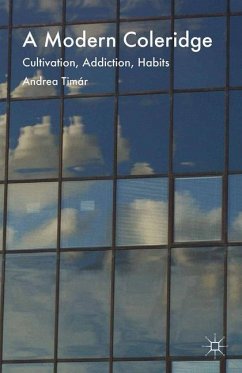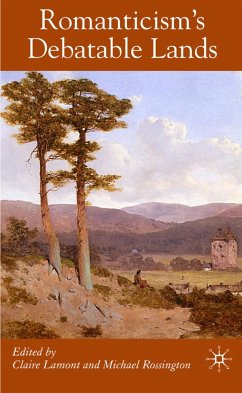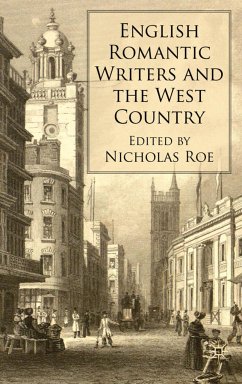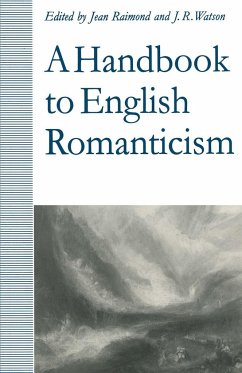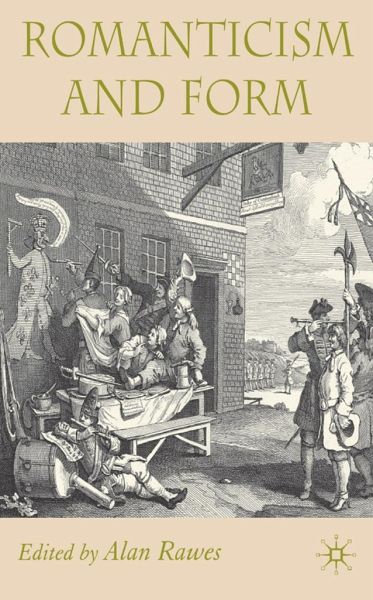
Alan Rawes
Gebundenes Buch
Romanticism and Form
Versandkostenfrei!
Versandfertig in 6-10 Tagen

PAYBACK Punkte
19 °P sammeln!





This book offers new analyzes of canonical texts, contextualizations of Romantic forms in relation to war, nationalism and empire, reassessments of neglected and marginalized writers and explorations of the relationship between form and reader. It showcases a range of new approaches that are informed by deconstruction, theology and new technology.
BERNARD BEATTY Senior Fellow at the University of Liverpool, UK MARIA NELLA CARMINATI Lecturer in Linguistics and Psycholinguistics at the University of Milan Bicocca, Italy PAUL M. CURTIS Professor of English Language and Literature at the Université de Moncton, Canada MARTIN FISCHER Reader in Psychology, University of Dundee, UK CAROLINE FRANKILIN Professor of English, University of Wales, Swansea, UK GAVIN HOPPS Academic Fellow, University of St Andrews, UK STEVEN E. JONES Professor of English, Loyola University Chicago, USA JACQUELINE M. LABBE Professor of English, University of Warwick, UK MICHAEL O'NEILL Professor of English, Durham University, UK ANDREW MICHAEL ROBERTS Reader in English, University of Dundee, UK MARK SANDY Lecturer in English Studies, Durham University, UK JANE STABLER Reader in Romanticism in the School of English, University of St Andrews, UK NICOLA TROTT Head of the Department of English Literature, University of Glasgow, UK SUSAN J. WOLFSON Professor of English, Princeton University, USA
Produktdetails
- Verlag: Palgrave Macmillan / Palgrave Macmillan UK / Springer Palgrave Macmillan
- Artikelnr. des Verlages: 978-1-4039-9472-1
- 2007
- Seitenzahl: 231
- Erscheinungstermin: 26. April 2007
- Englisch
- Abmessung: 224mm x 162mm x 18mm
- Gewicht: 414g
- ISBN-13: 9781403994721
- ISBN-10: 1403994722
- Artikelnr.: 22745681
Herstellerkennzeichnung
Libri GmbH
Europaallee 1
36244 Bad Hersfeld
gpsr@libri.de
'The critics assembled here are close readers, attentive to metre, stanza form, figures of speech, but they are not nostalgic for the New Criticism of the 1950s and 1960s. If they are formalists, they are formalists of a new kind, less likely to celebrate the unifying power of art than the fragmented and the multitudinous, more likely to acknowledge Byron than Wordsworth, but just as ready to study a satiric print, or a poem by Ann Cristall. This volume sets a challenging new agenda for Romantic Studies.' - Richard Cronin, Professor of English Literature, University of Glasgow, UK
Für dieses Produkt wurde noch keine Bewertung abgegeben. Wir würden uns sehr freuen, wenn du die erste Bewertung schreibst!
Eine Bewertung schreiben
Eine Bewertung schreiben
Andere Kunden interessierten sich für


